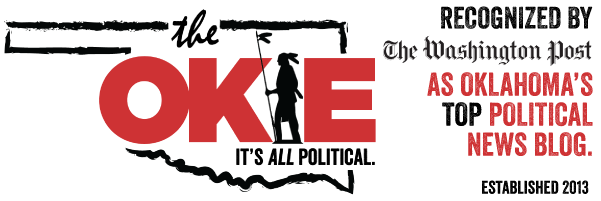Holt Bill Targets Wayward Electors (Yes, It’s A Big Deal!)
by Senator David Holt
Every four years, on the first Tuesday in November, Oklahomans go to the polls and cast their votes for President of the United States. Sometimes our candidate wins, sometimes our candidate loses, but we watch the results that night knowing that our vote counted. Or has it?
What I have just described is how most Oklahomans would describe the process of electing a President, but it is actually far more complicated than that. Here’s how it really works.
In the Spring of each Presidential election year, the two major political parties in Oklahoma each choose seven people to serve as Presidential electors. In the case of the Republican Party, five of those are chosen by election at district conventions held on Saturday mornings where party activists vie for the honor. Two are chosen by the state party’s executive committee and ratified at the state party convention.
In November, Oklahomans go to the polls and vote, not for the Presidential candidates they have heard so much about, but for slates of electors. All 14 names appear on the ballot, and voters choose a slate for the Republican Party or a slate for the Democratic Party. The slate of seven electors that receives the most votes from Oklahoma voters becomes the slate that will cast Oklahoma’s votes in the Electoral College.
In December, the chosen electors in each state meet at their capitols and cast their votes in the Electoral College, presumably for the candidate they were pledged to support. In every election dating back to 1968, the Republican Party’s seven electors have represented Oklahoma.
This system generally arrives at the same conclusion as the simpler version I related in my very first sentence. But for it to do so, it relies entirely on trust. And as President Ronald Reagan often said, “Trust, but verify.”
About 150 electors have failed their test by casting votes that were different than the vote they were expected to cast. One of those “faithless electors” was an Oklahoman who broke his oath in 1960. Never has this violation of the voters’ trust caused a change in the overall result of a Presidential election, but in the prolonged era of close elections we are living in, the possibility exists. It does not have to, however, and there is a step we can take to ensure that Oklahoma never becomes ground zero for a national crisis that shakes the public’s confidence in our electoral system.
Oklahoma makes it a misdemeanor for electors to break their oath and disenfranchise the millions of Oklahomans who relied on them to cast the vote in the Electoral College that they promised they would. But unlike in some other states, the faithless vote would still stand. Senate Bill 309 would change that, and bring Oklahoma in line with other states that have chosen to void any electoral vote that breaks the elector’s oath.
Under the process provided for in SB 309, the other electors would immediately replace any elector who breaks his or her oath, and the vote would not count. In practice, this process could be easily and quickly accomplished. There are alternate electors chosen for all seven positions, and there are any number of trustworthy people, including the Governor and the state party chairman, who attend the Electoral College ceremony and could step in if needed.
This is a common sense reform that would address a weakness of our current electoral system. If left unaddressed, we may never live to regret it, but I’d rather have certainty that Oklahomans will always go to sleep on election night believing in our system, with no fear that the whim of one person could reverse their choice.
Senator David Holt (R-Oklahoma City) represents the 30th Senate District of Oklahoma. He served as one of Oklahoma’s Presidential Electors in 2012. Senate Bill 309 has passed the Senate Rules Committee and is awaiting consideration in the full Senate.


Pingback: Senator Holt Op-Ed in “The Okie” | Vote David Holt for Oklahoma State Senate
Pingback: | Vote David Holt for Oklahoma State Senate